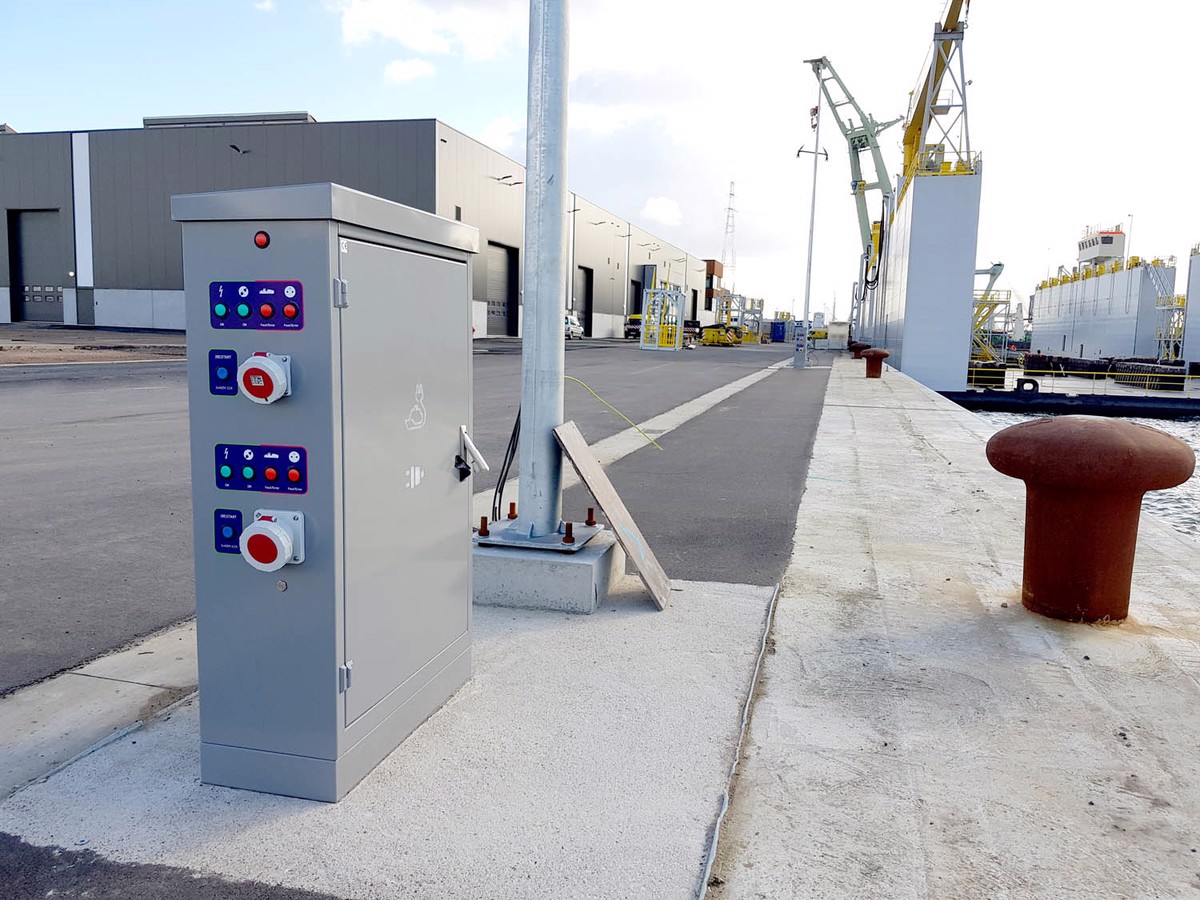EU Parliament formally adopts revised Alternative Fuel Infrastructure Regulation
The new Alternative Fuel Infrastructure Regulation (AFIR) will require all inland ports connected to the Trans-European Transport Network (TEN-T) to install shoreside electricity infrastructure by 2030.
 PHOTO: Shore power cabinets at Port of Antwerp. P&V Panels
PHOTO: Shore power cabinets at Port of Antwerp. P&V Panels
According to the revised regulation, all container and passenger ships will be required to use shore power for “all electricity needs” while docked at major EU ports from 2030.
To power inland waterway vessels, the regulation also requires shore power installations to be deployed at "all TEN-T core inland waterway ports" by 2024 and at "all TEN-T comprehensive inland waterway ports" by 2029.
The TEN-T network covers railways, inland waterways, short sea shipping routes and roads linking urban nodes, maritime and inland ports, airports and terminals. Its core network includes the most important connecting ports, while comprehensive network includes ports that connect to the core network.
Parliament’s rapporteur on alternative fuels infrastructure, Petar Vitanov said, “the new rules will also help to deploy more charging infrastructure and make it as easy to use as traditional petrol stationsʺ.
The European Parliament also formally adopted the FuelEU Maritime regulation yesterday, which sets greenhouse gas (GHG intensity reduction targets for shipping.
By Konica Bhatt
Please get in touch with comments or additional info to news@engine.online





